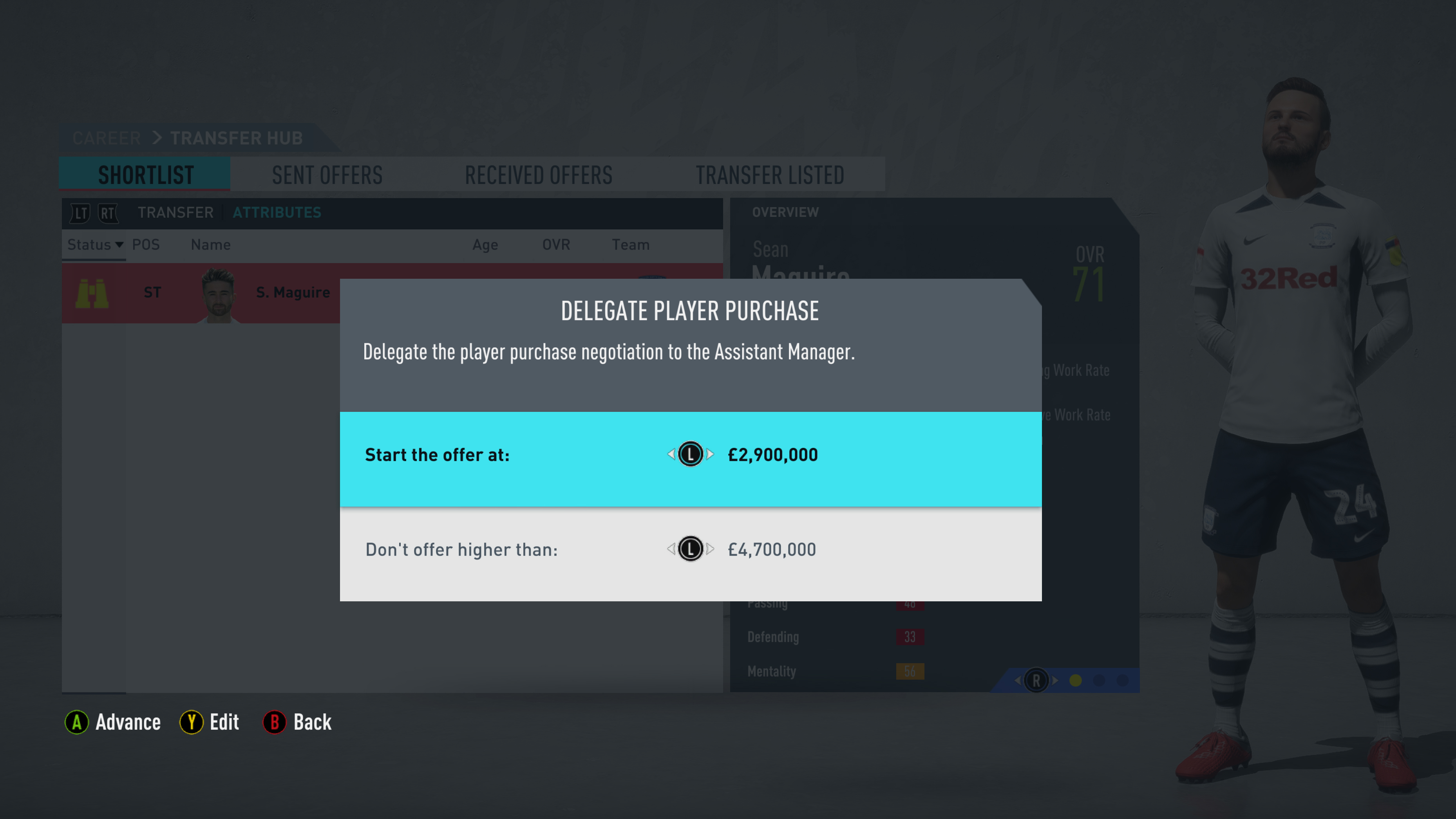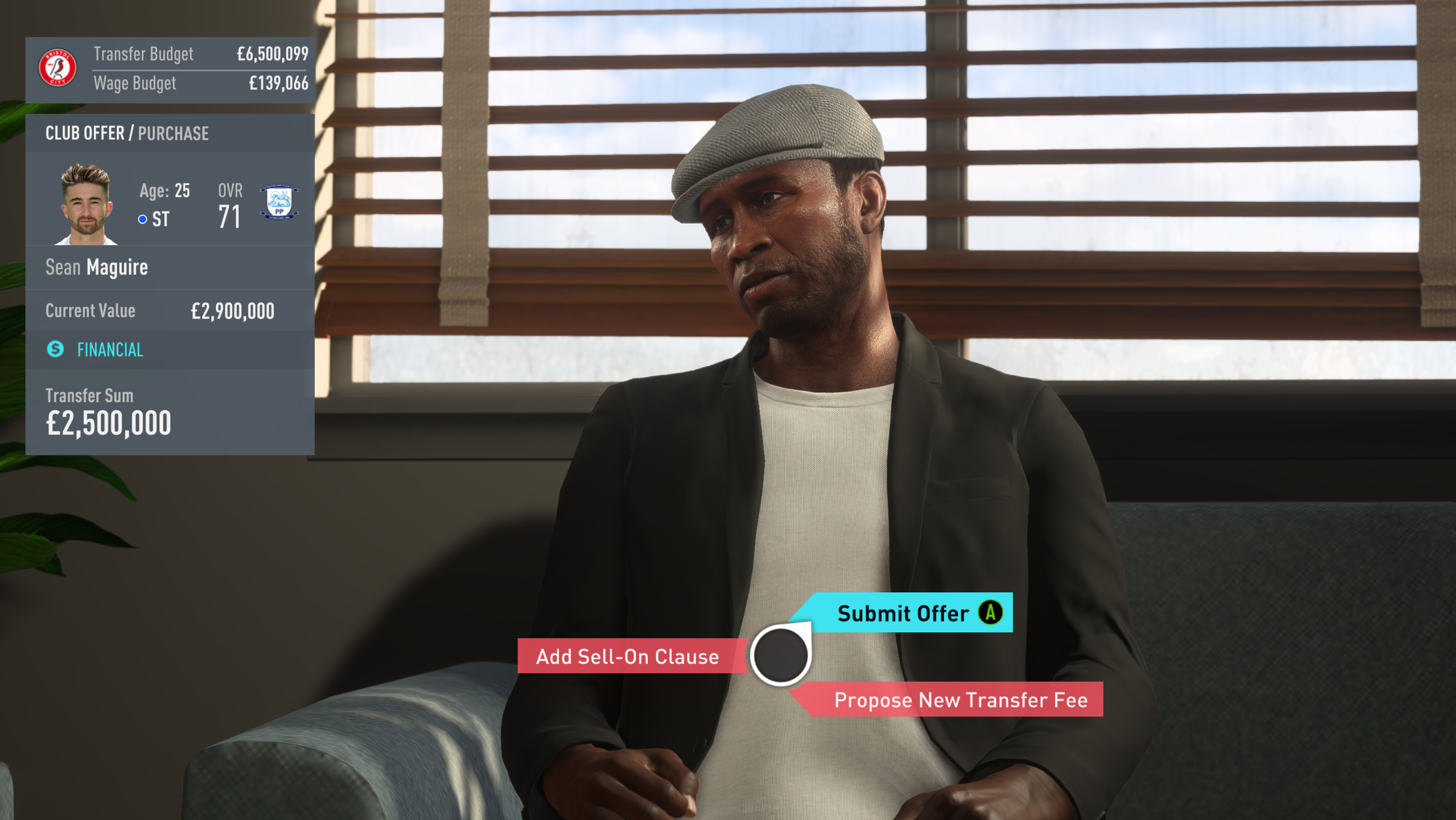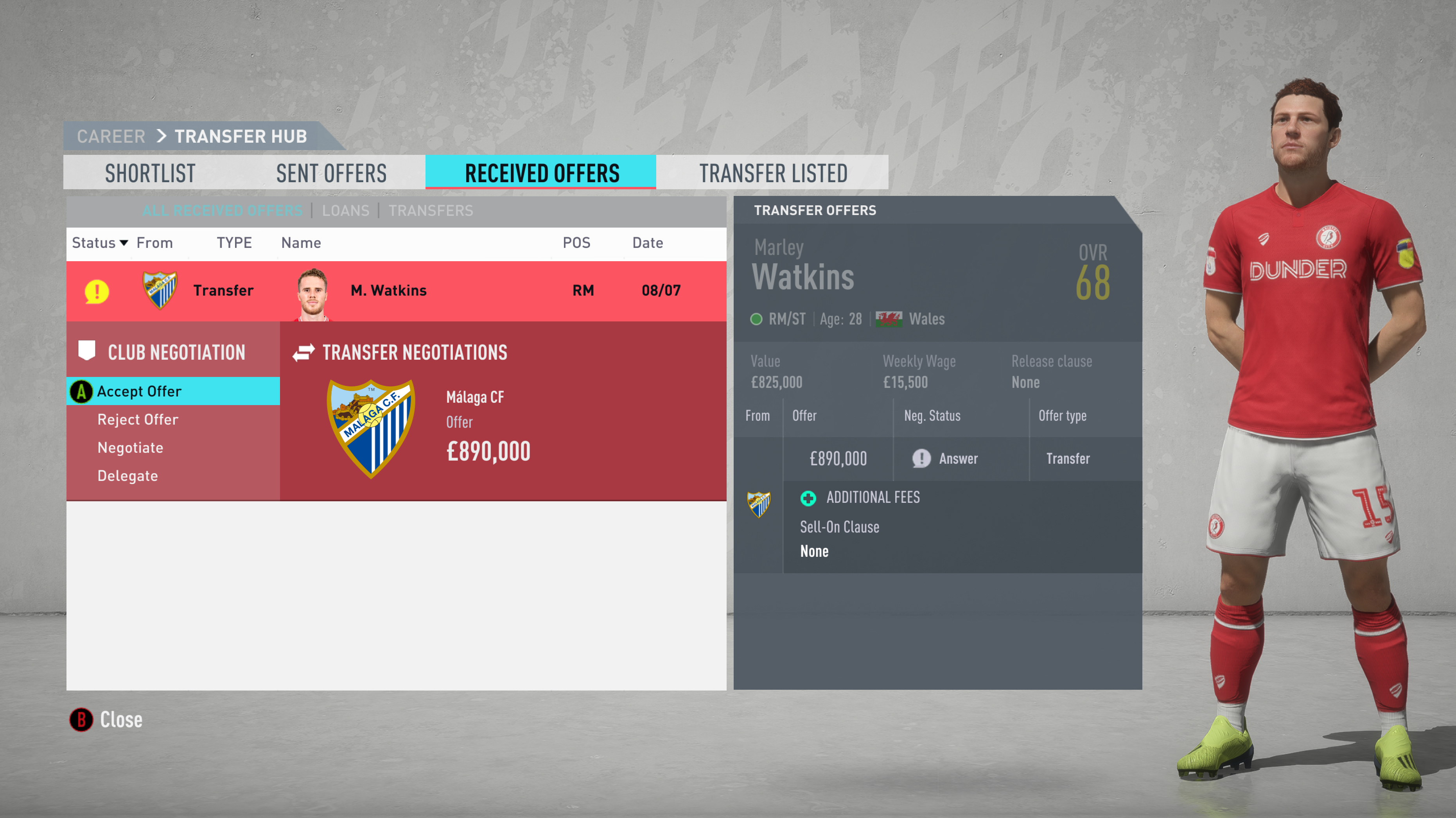FIFA 20 Career Mode guide: choose the best team and scout the top players
Master both boardroom and dugout with our in-depth FIFA 20 Career Mode guide
FIFA 20 Career Mode guide: Transfers
FIFA 20's immersive transfer system lets you sit down with the player and his agent in order to hammer out a deal. Here's how it works at its most basic:
You've received an offer for a player in your squad. The blue section on the right tells you what you should expect to sell him for. As the offer falls within this range, you can accept it by selecting 'Show actions', then 'Accept offer'.
If you want to sell players quickly, that's all there is to it.
Delegating transfers to your assistant

You have a few more options when buying players, in that you can offload the work to your assistant if you're too busy to do it yourself.
First up, you'll need to fully scout a player to learn how much you might be able to buy him for. The Transfers tab gives you a list of suggested transfer targets; simply select one you're interested in and ask your scout to have a look at him.
Once the report is in, view the player and select Shortlist & View in Transfer Hub. It's now time to delegate the transfer bidding to your assistant. This is very straightforward; just tell your assistant what price to start at and what amount they shouldn't go over, then tell them to get started. You'll get a report back in a few days telling you if the negotiations have been successful.
Here's a handy tip: Don't be afraid to tell your assistant to start the bidding below your scout's recommended starting price. The assistant can always raise the bid if it's not enough, but it could end up getting you a better deal than you expected.
If everything goes according to plan you can accept the deal, or step in to negotiate it yourself if you think you can get a better price.
Handling transfers yourself

If you prefer to take care of transfer fee negotiations yourself, there are a few things you need to be aware of:
Release clause: Some players will have a release clause. This is like a trump card that lets you bypass the selling team and go straight to contract negotiations with the player, as long as you're willing to pay it. If the release clause is close to his value, it can be a great way to cut out a stubborn selling team. Just be aware that these clauses are often a lot higher than the price you can get from negotiations, but they cut out the faff of having to spend time negotiating.
Transfer fee: As we mentioned earlier, always use your scout's advice when suggesting a transfer fee. Without it, you don't really know how much to offer, and could get ripped off.
Player swap: This is a good option if you want to offload a player, or don't have the funds for a cash-only deal. Just make sure the player you exchange isn't a lot more valuable than the player you're bringing in!
Sell-on clause: A good way to lower the initial fee when buying a player is by including a sell-on clause, which you'll pay to the original club if you sell the player at a later date. Be careful though – if you buy a promising player and his value later skyrockets, the sell-on fee could end up being quite expensive.
Finalised the fee with the selling club? Great – now it's time to negotiate the player's contract. Here's what you need to know:
Squad role: This tells the player how much game time he can expect at your club. Make sure it's something reasonable though. Offer a low-rated, promising young player a vital squad role and it won't be long before he kicks up a fuss at not being played as much as you told him he would.
Contract length: The longer the contract length, the more years the player is committing to your club and therefore the higher the fee you can demand if a club comes knocking before his contract is up.
Release clause: Try to avoid this if possible. If the player insists on one, make it a large amount. If another team offers this fee then you can't reject the bid, so you don't want to lose a player for anything less than top dollar – especially if he's vital to your team. Think of it this way: would you be happy if the player left for his release clause value?
Salary: The most important contract clause. If you're managing a big club and buy a player from a small team, he may not mind a small salary increase (or even a pay cut) to join you. Conversely, trying to lure a big player to a smaller club will be expensive, and he will be less likely to budge on his salary demands.
Signing bonus: This is a fee paid to a player upon the signing of a new contract, and applies to both new players and those who are renewing their contracts. You can sometimes avoid it if you instead offer an attractive salary, however.
Goal/clean sheet/appearance bonus: These are added sweeteners to further tempt a player to sign a contract. Just be careful – if your player goes on a scoring spree or turns into a brick wall at the back, it'll take a financial toll. Not that good performances are a bad thing – you have to pay for quality, after all!
The key to a successful negotiation is tact. Don't offer offensively low wages and incentives to players or the talks will swiftly end. Likewise, don't throw money at a player to convince him to join if the financial implications will cripple the club. Use your scout's recommendations and a healthy dose of common sense, and you'll be signing and selling in no time.
Other transfer tips

Got a player you don't want to sell? Go to the Squad Hub, find the player and select 'Block offers' to stop clubs bidding for him. Just be aware that other teams can still activate his release clause (if he has one), so it might be an idea to renegotiate his contract to remove that clause if you really don't want to lose him.
Don't forget that you can send and receive transfer offers all year round, not just in the transfer window. Once completed, the signings will go through once the window opens. That means you should always be on the lookout for potential new signings – don't just wait until the transfer window or you may find another team has beaten you to the punch in the off season.
Current page: FIFA 20 Career Mode Guide - Transfers
Prev Page FIFA 20 Career Mode Guide - Team Selection Next Page FIFA 20 Career Mode Guide - ScoutingWeekly digests, tales from the communities you love, and more

Alex Blake is a freelance writer, who has written extensively for TechRadar, T3, Digital Camera, Digital Trends, CreativeBloq, MacFormat, and GamesRadar. He's a huge FIFA fan and loves FIFA career mode so much so that he runs a site devoted to it at FIFAscoutingtips.com.


